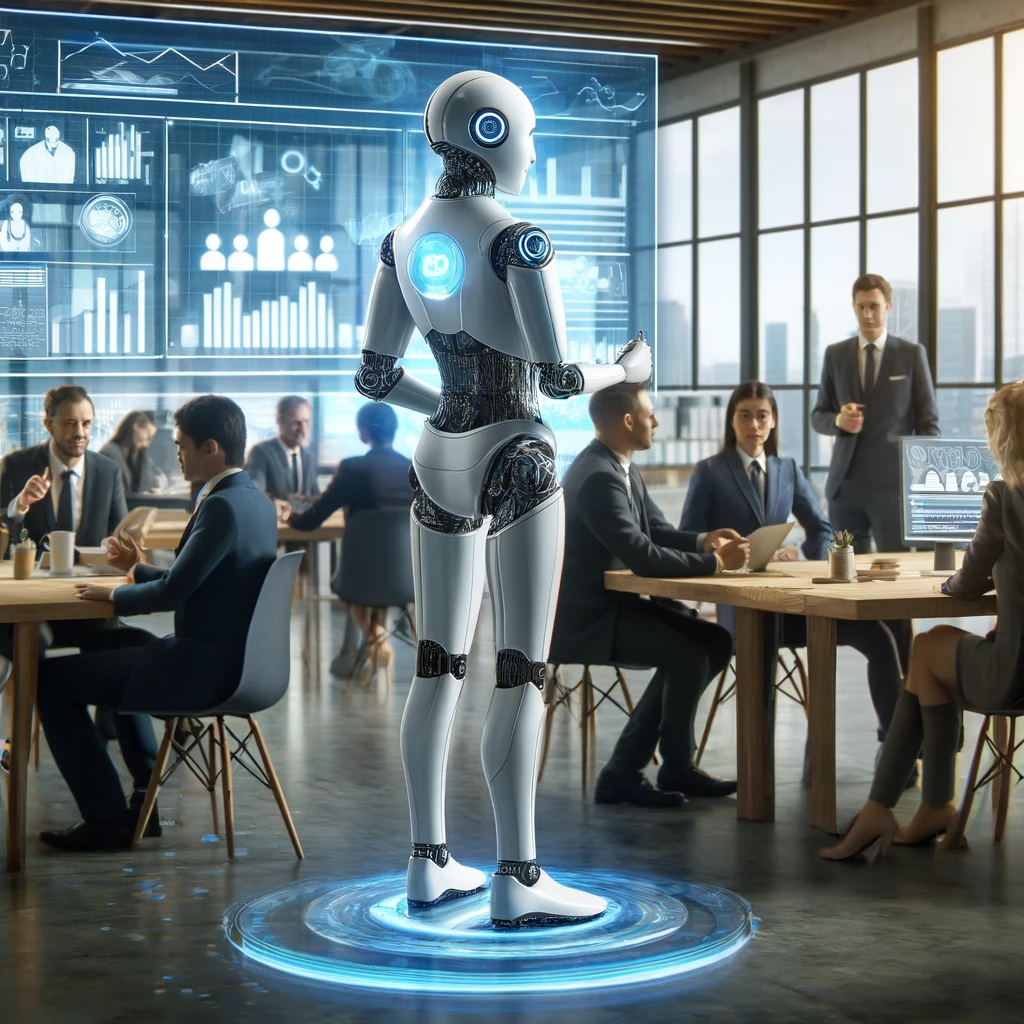Artificial Intelligence (AI) has become a transformative force in various sectors, including Human Resource Management (HRM). But what exactly is the role of AI in HRM? Let’s delve into it.
The Transformative Impact of AI on HRM
AI agents, autonomous systems capable of interpreting data, learning from it, and making decisions to achieve specific goals, are increasingly being used in HRM. These agents are revolutionizing HR tasks such as employee selection, development, and recruitment. Sounds impressive, right?
Challenges in Integrating AI in HRM
However, the integration of AI in HRM also presents unique challenges, including job loss fears, the need for new skills development, and changes in professional demands. These are hurdles that need to be addressed.
Streamlining Recruitment with AI
AI agents are being utilized to streamline the recruitment process. They can automate tasks such as data mining from social networking sites for new employee recruiting, facilitating job application and selection practices, and using smart sensory mechanisms to evaluate employee productivity. For instance, Generative Pre-trained Transformer-3 (GPT-3), an AI language tool, has been applied to recruitment, hinting at the potential of AI in HRM.
Overcoming Barriers in AI Implementation for Recruitment
However, the implementation of AI in HRM is not without challenges. Resistance to change, fear of job loss, and organizational inertia are some of the barriers that need to be addressed. But how can AI play a role in employee engagement?
Transforming Talent Management with AI
AI is also playing a crucial role in employee engagement. AI-powered tools are being used to transform talent onboarding, development, and offboarding processes. These tools can provide personalized experiences, improve communication, and offer real-time feedback, thereby enhancing employee engagement.
New Challenges for HRM Managers and Employees
However, the increasing prevalence of AI systems in the workplace is likely to shape the way people work and how their performance is measured and managed, posing new challenges for HRM managers and employees alike. So, what does the future hold for AI in HRM?
The Promising yet Complex Future of AI in HRM
The future of AI in HRM looks promising but complex. As AI continues to evolve, it is expected to bring about significant changes in HRM. AI agents could potentially take over repetitive tasks, allowing HR professionals to focus on more strategic aspects.
Preparing HR Professionals for the AI Revolution
However, this also means that HR professionals will need to acquire new skills to work alongside these AI agents. Furthermore, organizations will need to address the challenges posed by AI, such as job loss fears and resistance to change, to fully harness the benefits of AI in HRM.
Addressing the Challenges of AI Integration in HRM
In conclusion, AI agents are transforming HRM by automating various tasks and improving employee engagement. However, the integration of AI in HRM also presents unique challenges that need to be addressed.
Equipping HR Professionals with Necessary Skills for AI Collaboration
As we move forward, it will be crucial for organizations to adapt to these changes and equip their HR professionals with the necessary skills to work alongside AI agents. Ready to take the next step?
Sign up to Relevance AI for free and hire your own AI Agent. Get to value in less than a few minutes. With Relevance AI, you can streamline your HR recruitment process, enhance employee engagement, and stay ahead of the AI revolution. Don’t wait, sign up today!


